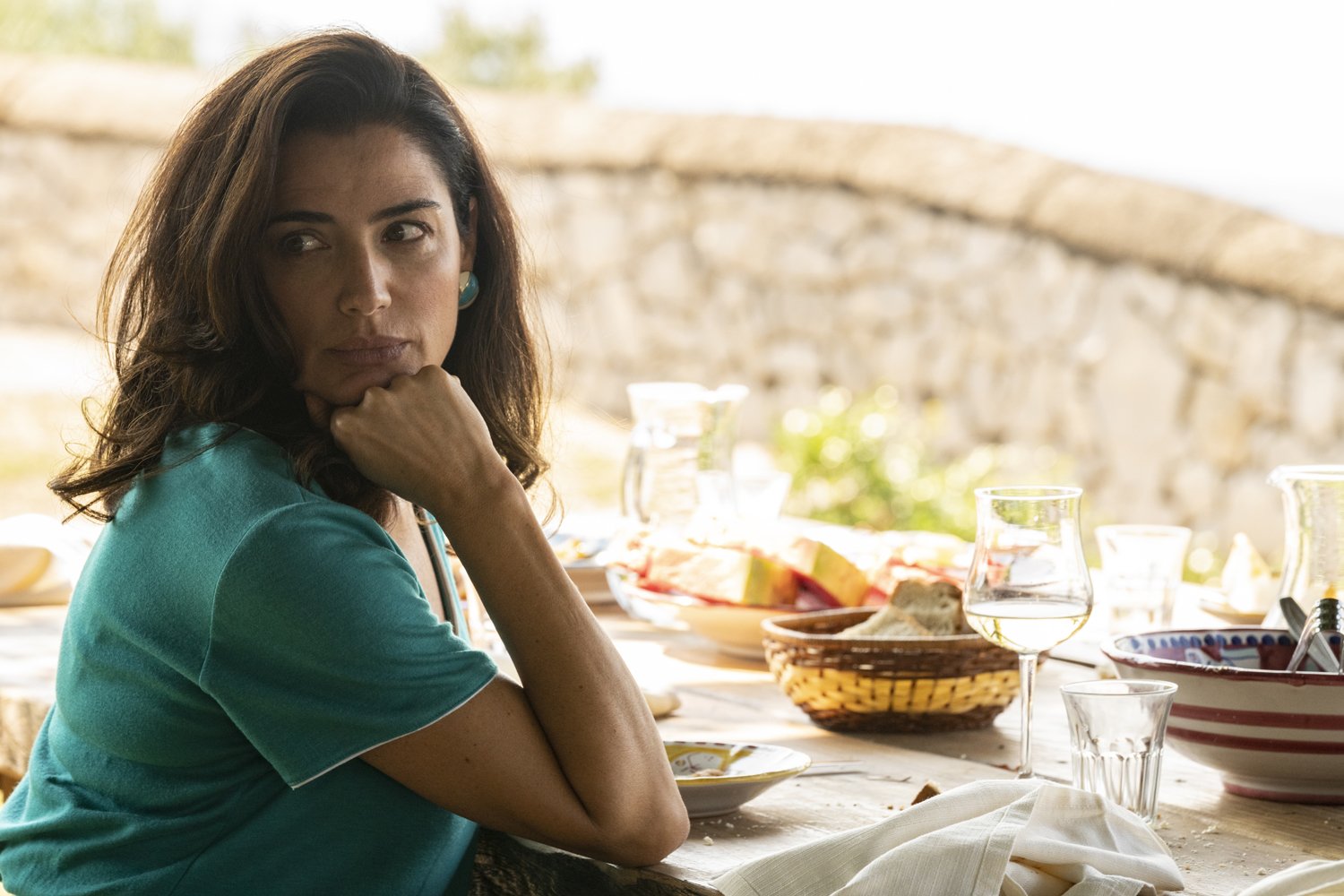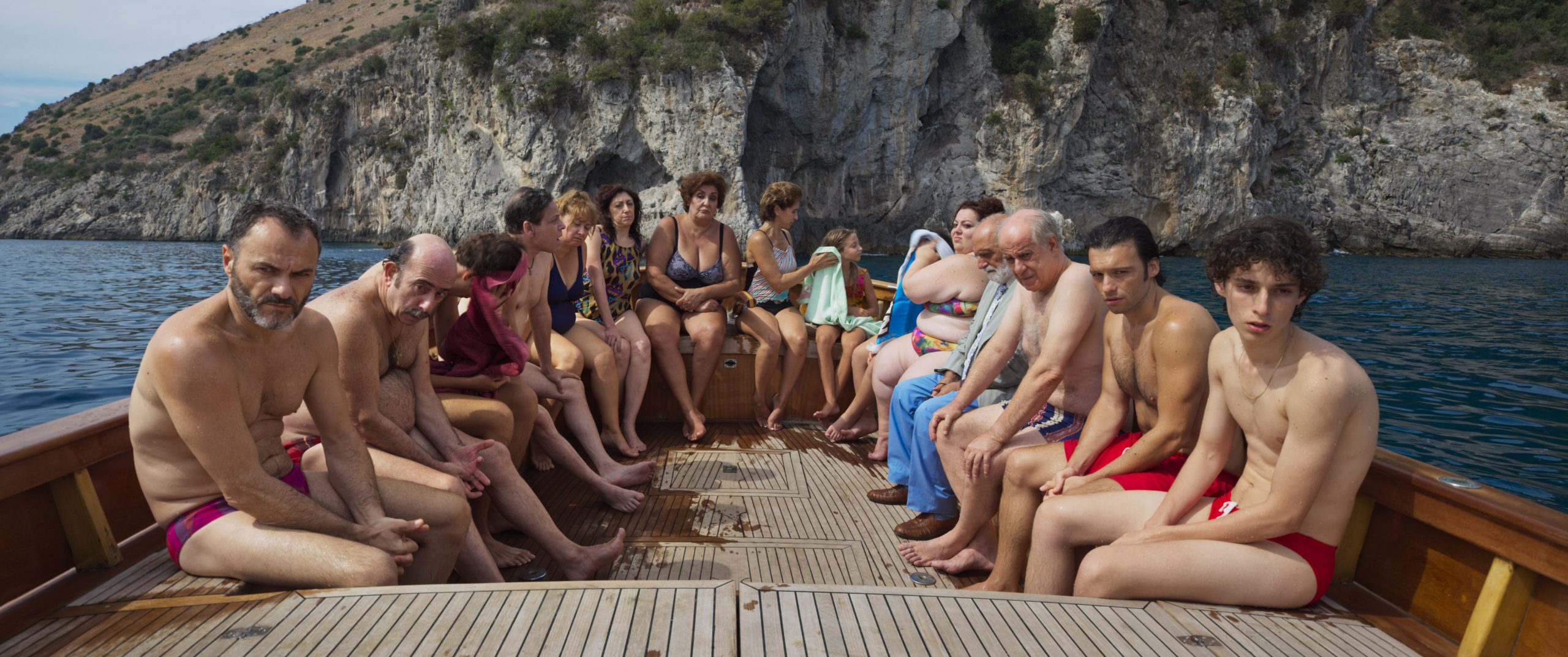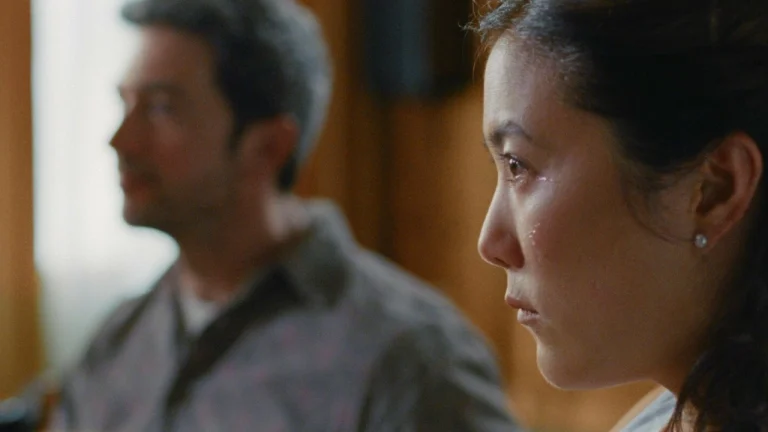Since the turn of the century, Italian filmmaker Paolo Sorrentino has preoccupied himself with creating alternate realities. Through his inventive visual set-pieces and flare for the often whimsical, he has molded locations as varied as the Vatican (The Young Pope, 2016), the Swiss Alps (Youth, 2015), and Dublin (This Must Be the Place, 2010) in his own image, mixing obvious paeans to Fellini with caffeinated energy all his own. In his latest film, The Hand of God (È stata la mano di Dio), the director returns home to Naples, the Southern Italian city bound together by years of industrial neglect and government underfunding.
The film begins with a long, silent tracking shot over the coastline, and throughout the movie, we witness characters returning to a key set of locations: the Stadio San Paolo football ground, the local theatre, the plaza, the docks. By the time 120 minutes has passed, the world of Sorrentino’s childhood feels effectively, engrossingly lived in, drawing you into his deeply emotive tale of grief and love.
Related to The Hand of God – The Great Beauty [2013]: Life and Lies
Filippo Scotti stars as Fabietto, an 18-year-old with close ties to his extended family but little connection with other boys his age. He wanders lonely through the school gates, receiving a classical education his father envies and mocks, lusts after his aunt, Patrizia, and yearns for nothing more than Diego Maradona to complete his transfer to local club Napoli from Barcelona. In the background, his parents (Teresa Saponangelo and the ever-charming Toni Servillo) plan to buy a second house, his older brother auditions for the latest Fellini film, and his aunt’s fidelity is constantly questioned by her abusive husband: the state is set for a coming-of-age story of unspeakable tragedy yet unbreakable hope.

Such ambitious emotional heft can only be built from solid foundations, and this is Sorrentino’s most technically sound project since The Great Beauty. Cinematographer Dario d’Antonio’s swirling frames can at one moment accentuate the exploratory wonder of adolescence and at another the stark mortality of the human condition. Kinetic vistas of buildings, skies, oceans, and coasts give the film a wonderfully naturalistic feel.
An autobiographical piece, The Hand of God takes place in the late 1980s, but traditional hallmarks of the period piece are eschewed in favor of a recreation of the communal atmosphere of a time gone by, something buoyed by the nuanced joie de vivre of Servillo’s turn especially.
Also, Read – I Lost My Body [2019] Netflix ‘MAMI’ Review: A leisurely fairy tale with Profound Meanings
In an early scene, we see the entire Schisa family unit eating, joking, swimming, and gossiping together: each new character more witty, entertaining, and physically distinctive than the last, and speaking some of Sorrentino’s most raucous dialogue to date. If only, the viewer feels, later on, this moment could be distilled and repeated forever. In a way, the value of such a clearly personal work is that through his lens the filmmaker can distill this moment, and it may be briefly worth considering what emotional strength it takes to recreate such a difficult period of one’s life on the silver screen.
Sorrentino has never been a filmmaker specializing in subtlety, and for better or worse he shows evidence of no newfound restraint here. Emotions are heightened by performances of both dramatic and comedic intensity, and obvious symbolism is draped across the screen. His interests largely remain the same, too.
Football is a root of drama, dispensing joy and misery at random, the power of cinema and theatre illuminate the mind of our protagonist, and the bodies of women remain a constant source of (admittedly lingering) fascination for his frame. Here they reflect and refract Fabietto’s angst and growing emotional maturity, though much of this maturity is presented in seemingly immature outbursts of emotion.
Through careful characterization and Scotti’s powerful performance, the character is more than just the sum of his experiences. The profound empathy this creates is the kind necessary to keep the audience aboard such an emotional rollercoaster.
The rollercoaster veers into awkward, audacious, and tear-jerking territory, and has a panache for the excessive. Perhaps the movie’s central flaw is that there are so many moments of startling emotional clarity for our teenage protagonist that go on to feel like false dawns by the next scene. There are multiple moments before the film’s 129 minutes are up that would feel more than appropriate as climaxes, but ultimately it’s to the viewer’s benefit that The Hand of God keeps going, as once Sorrentino has gripped you into the vibrant, earthy world of ‘80s Naples, you’ll be apprehensive to ever leave.


![Aladdin [2019] Review: Just Magical Enough](https://79468c92.delivery.rocketcdn.me/wp-content/uploads/2019/06/Aladdin-Highonfilms1-768x326.jpg)
![Paterson [2016]: A Celebration of Life](https://79468c92.delivery.rocketcdn.me/wp-content/uploads/2017/02/paterson-768x384.jpg)



![Ibrahim: A Fate To Define [2019] ‘TIFF’ Review: Was it a storm or was it an axe that brought the tree down?](https://79468c92.delivery.rocketcdn.me/wp-content/uploads/2019/09/Ibrahim-A-Fate-to-Define-TIFF-768x384.jpg)